第37章 VI THE PARADOXES OF CHRISTIANITY(7)
Really they require almost as careful a balance of laws and conditions as do social and political liberty. The ordinary aesthetic anarchist who sets out to feel everything freely gets knotted at last in a paradox that prevents him feeling at all. He breaks away from home limits to follow poetry. But in ceasing to feel home limits he has ceased to feel the "Odyssey." He is free from national prejudices and outside patriotism. But being outside patriotism he is outside "Henry V." Such a literary man is simply outside all literature: he is more of a prisoner than any bigot. For if there is a wall between you and the world, it makes little difference whether you describe yourself as locked in or as locked out. What we want is not the universality that is outside all normal sentiments; we want the universality that is inside all normal sentiments.
It is all the difference between being free from them, as a man is free from a prison, and being free of them as a man is free of a city. I am free from Windsor Castle (that is, I am not forcibly detained there), but I am by no means free of that building.
How can man be approximately free of fine emotions, able to swing them in a clear space without breakage or wrong? THIS was the achievement of this Christian paradox of the parallel passions.
Granted the primary dogma of the war between divine and diabolic, the revolt and ruin of the world, their optimism and pessimism, as pure poetry, could be loosened like cataracts.
St. Francis, in praising all good, could be a more shouting optimist than Walt Whitman. St. Jerome, in denouncing all evil, could paint the world blacker than Schopenhauer. Both passions were free because both were kept in their place. The optimist could pour out all the praise he liked on the gay music of the march, the golden trumpets, and the purple banners going into battle.
But he must not call the fight needless. The pessimist might draw as darkly as he chose the sickening marches or the sanguine wounds.
But he must not call the fight hopeless. So it was with all the other moral problems, with pride, with protest, and with compassion.
By defining its main doctrine, the Church not only kept seemingly inconsistent things side by side, but, what was more, allowed them to break out in a sort of artistic violence otherwise possible only to anarchists. Meekness grew more dramatic than madness.
Historic Christianity rose into a high and strange COUP DE THEATRE of morality--things that are to virtue what the crimes of Nero are to vice. The spirits of indignation and of charity took terrible and attractive forms, ranging from that monkish fierceness that scourged like a dog the first and greatest of the Plantagenets, to the sublime pity of St. Catherine, who, in the official shambles, kissed the bloody head of the criminal. Poetry could be acted as well as composed. This heroic and monumental manner in ethics has entirely vanished with supernatural religion. They, being humble, could parade themselves: but we are too proud to be prominent.
Our ethical teachers write reasonably for prison reform; but we are not likely to see Mr. Cadbury, or any eminent philanthropist, go into Reading Gaol and embrace the strangled corpse before it is cast into the quicklime. Our ethical teachers write mildly against the power of millionaires; but we are not likely to see Mr. Rockefeller, or any modern tyrant, publicly whipped in Westminster Abbey.
Thus, the double charges of the secularists, though throwing nothing but darkness and confusion on themselves, throw a real light on the faith. It is true that the historic Church has at once emphasised celibacy and emphasised the family; has at once (if one may put it so) been fiercely for having children and fiercely for not having children.
It has kept them side by side like two strong colours, red and white, like the red and white upon the shield of St. George. It has always had a healthy hatred of pink. It hates that combination of two colours which is the feeble expedient of the philosophers.
It hates that evolution of black into white which is tantamount to a dirty gray. In fact, the whole theory of the Church on virginity might be symbolized in the statement that white is a colour: not merely the absence of a colour. All that I am urging here can be expressed by saying that Christianity sought in most of these cases to keep two colours coexistent but pure. It is not a mixture like russet or purple; it is rather like a shot silk, for a shot silk is always at right angles, and is in the pattern of the cross.
So it is also, of course, with the contradictory charges of the anti-Christians about submission and slaughter. It IS true that the Church told some men to fight and others not to fight; and it IS true that those who fought were like thunderbolts and those who did not fight were like statues. All this simply means that the Church preferred to use its Supermen and to use its Tolstoyans. There must be SOME good in the life of battle, for so many good men have enjoyed being soldiers. There must be SOME good in the idea of non-resistance, for so many good men seem to enjoy being Quakers. All that the Church did (so far as that goes) was to prevent either of these good things from ousting the other.